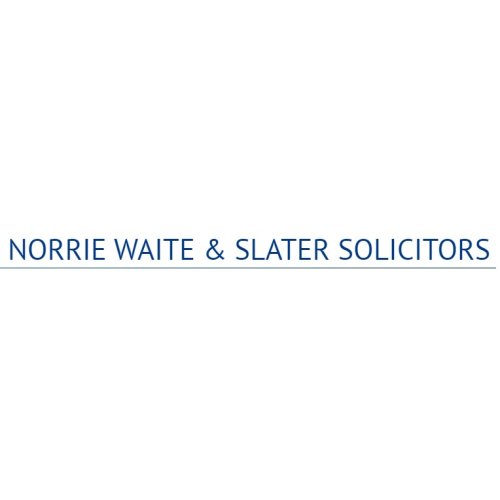Best Foreclosure Lawyers in Killamarsh
Share your needs with us, get contacted by law firms.
Free. Takes 2 min.
Free Guide to Hiring a Real Estate Lawyer
List of the best lawyers in Killamarsh, United Kingdom
About Foreclosure Law in Killamarsh, United Kingdom
In the United Kingdom, foreclosure, also known as repossession, is a process whereby a mortgagee (usually a bank) takes possession of a property when the mortgagor fails to keep up with their mortgage payments. The laws surrounding foreclosure in Killamarsh are the same as the rest of the United Kingdom and are governed by the Conveyancing and Feudal Reform Act (Scotland) Act 1970 and the Mortgage Repossessions Act 2010.
Why You May Need a Lawyer
If you're facing the possibility of foreclosure on your property, it's crucial to seek legal advice. Some common situations where you might require an attorney's assistance include when you're served with a notice of default or a repossession order, or when you're trying to restructure your mortgage or negotiate a forbearance agreement with your lender. A lawyer can also help you understand your rights, represent you in court, and guide you through the alternatives to foreclosure.
Local Laws Overview
While foreclosure laws are federal in nature, they are implemented at local levels. In Killamarsh, like elsewhere in the UK, you should be aware of the methods of repossession that your lender can resort to such as Voluntary Surrender and Court Ordered Repossession. You also have the right to seek a postponement of eviction after receipt of a repossession order and a right to apply for a Time Order, which can help to rearrange your payments in a more manageable manner. Keep in mind that these are grave matters and require the understanding and expertise of a competent attorney.
Frequently Asked Questions
What triggers a foreclosure process?
Banks will commonly begin the foreclosure process after a borrower has missed at least two to three mortgage payments, and has not responded to any missive regarding the arrears. However, the number of missed payments may differ according to the contract with the bank.
How long do I have to leave the property after foreclosure?
The period to leave the property after foreclosure varies, but it is generally 28 days after the court hearing, unless you file for a postponement of eviction.
Can I get my home back after a foreclosure?
After a foreclosure, there may be a chance of reclaiming your house. You have a set period (known as the repossession period) during which you can repay what you owe and possibly reclaim the property. The precise period depends on individual circumstances and court decisions.
Does foreclosure always end with eviction?
Not necessarily. In some cases, an agreement can be made to restructure the mortgage or to pay the arrears within a certain time frame, allowing the borrower to stay in the property.
What are the alternatives to foreclosure?
Alternatives to foreclosure include selling your home, proposing a payment plan, forbearance, loan modification, or the seeking of advice from debt relief companies.
Additional Resources
The Citizens Advice Bureau is an excellent resource offering free, confidential, and independent advice about legal matters such as foreclosure. The Financial Conduct Authority (FCA) also has guidance on how to manage and prevent mortgage arrears and repossession.
Next Steps
If you need legal assistance relating to foreclosure in Killamarsh, the first step is to find a solicitor experienced in foreclosure law who can provide advice tailored to your specific situation. You'll need to arm yourself with all relevant documentation, including your mortgage agreement and any correspondence from your lender relating to your arrears. It's crucial that you act swiftly and responsively to improve your chances of successfully preventing repossession or mitigating its impact.
Lawzana helps you find the best lawyers and law firms in Killamarsh through a curated and pre-screened list of qualified legal professionals. Our platform offers rankings and detailed profiles of attorneys and law firms, allowing you to compare based on practice areas, including Foreclosure, experience, and client feedback.
Each profile includes a description of the firm's areas of practice, client reviews, team members and partners, year of establishment, spoken languages, office locations, contact information, social media presence, and any published articles or resources. Most firms on our platform speak English and are experienced in both local and international legal matters.
Get a quote from top-rated law firms in Killamarsh, United Kingdom — quickly, securely, and without unnecessary hassle.
Disclaimer:
The information provided on this page is for general informational purposes only and does not constitute legal advice. While we strive to ensure the accuracy and relevance of the content, legal information may change over time, and interpretations of the law can vary. You should always consult with a qualified legal professional for advice specific to your situation.
We disclaim all liability for actions taken or not taken based on the content of this page. If you believe any information is incorrect or outdated, please contact us, and we will review and update it where appropriate.








